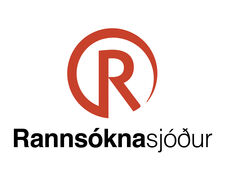Ruglaðar ætlanir og möguleikinn á merkingarfræðilegri kenningu um einkvæma tilvísunarliði - verkefni lokið
Fréttatilkynning verkefnisstjóra
Verkefnið byggði á nýjum niðurstöðum í hugfræði og málgjörðafræði og settu rannsakendur saman nýstárlega kenningu um einkvæma tilvísun sem sneiðir hjá ýmsum vel þekktum ráðgátum og mótbárum. Kenningin, kölluð edenísk ætlunarhyggja, byggir á hugmyndum hugfræðinga um
vísindalegar skýringar og hugmyndum málspekinga um muninn á meiningu og merkingu tilvísunarorða.
Kenningin byggir einnig á nýrri útskýringu á svokölluðum samsemdarruglingi og greinir á milli spurninga sem varða táknandi athafnir og þeirra sem varða táknandi hugarástand. Við stungum þannig upp á leið til að skipta verkefnum á milli ólíkra rannsóknarsviða, en edenísk ætlunarhyggja er kenning um táknandi athafnir af ákveðnu tagi. Kjarni kenningarinnar er á þá leið að samsemdaruglingur hafi truflandi áhrif á tiltekinn hluta málhæfileikans, nefnilega hæfileikans til að beita tilvísun í tungumáli með eðlilegum hætti.
English:
Combining new insights from cognitive science and speech act theory, we developed a compelling
theory of singular reference which avoids well-known puzzles and objections. The theory, called
edenic intentionalism, is grounded in a mechanistic perspective on explanation in cognitive science and a new Gricean account of speaker meaning and speaker reference. The theory depends on an original account of the mental state of identity confusion and separates questions about the nature of representational acts and representational states. We proposed a scientific division of labour, but edenic intentionalism is strictly a theory of intentional, mind-directed representational acts, taking speech acts as its paradigm case.
We argued that mental mechanisms ought to be postulated to explain human cognitive capacities. Pragmatic competence is the capacity to successfully produce utterances with a communicative intention. By examining the characteristic function and malfunction of the mechanism for referential competence, the study shows that confused reference should be understood as a type of malfunction. This is the core thesis of edenic intentionalism: that the identity confusion disrupts the normal function of the speech act of reference.
∙ Information on how the results will be applied
The results will be applied in future research projects. The PI now leads a project which grew directly out of this one, with an even larger group of international researchers. This project applies the intentionalist framework to issues and questions about insincere speech, self-deception, inner speech, and related phenomena. The project is called Insincerity for Fragmented Minds, or the InFraMinds Project (www.inframinds.ie) , and is funded by University College Dublin and Rannís.
∙ A list of the project’s outputs
Publications:
1. (2022) Talking About: An Intentionalist Theory of Reference. Oxford University Press.
2. (2020) Compositionality and Expressive Power, Croatian Journal of Philosophy 20(3):295-310.
3. (2020) Meanings as Species by Mark Richard, Mind 130(518):707-714 (book review).
4. (2019) Frege’s Puzzle is About Identity After All, Philosophy and Phenomenological Research,99(3):628-643.
5. (2019) Silencing without Convention, Pacific Philosophical Quarterly, 100(2):573-598
6. (2019) The Edenic Theory of Reference, Inquiry 62(3):267–299.
7. (2018) Referential Intentions: A Response to Buchanan and Peet, Australasian Journal of Philosophy 96(3):610–615.
8. (2018) Wittgenstein’s Influence on Austin’s Philosophy of Language, British Journal for the History of Philosophy 26(2):371–395 (co-author: Daniel W. Harris).
9. (2017) Saying without Knowing What or How, Croatian Journal of Philosophy 17(3):351–382.
10. (2017) A Gricean Theory of Malaprops, Mind & Language 32(4):446–462.
11. (2016) Confusion is Corruptive Belief in False Identity, Canadian Journal of Philosophy 46(2):204–227.
12. (2016) Wittgenstein as a Gricean Intentionalist, British Journal for the History of Philosophy 24(1):155–172.
Events:
1. 2019 The Ontario Meaning Workshop, Organizer with D. Harris and N. Charlow, Participants:30, Canada (co-funded by University of Toronto)
2. 2018 The Iceland Meaning Workshop, Organizer with D. Harris and N. Charlow, Participants:30, Iceland (co-funded by University of Toronto)
3. 2018 Workshop on Insincerity, Self-Deception, and Self-Talk, Only organizer, Participants: 15,Ireland (co-funded by UCD)
4. 2017 The Nova Scotia Meaning Workshop, Organizer with D. Harris and N. Charlow.
Participants: 30, Canada (co-funded by University of Toronto)
Heiti verkefnis: Ruglaðar
ætlanir og möguleikinn á merkingarfræðilegri kenningu um
einkvæma tilvísunarliði / Confused Intentions and the Prospects of a
Metasemantics for Singular Terms
Verkefnisstjóri: Elmar Geir Unnsteinsson, Háskóla Íslands, University College Dublin
Tegund styrks: Verkefnisstyrkur
Styrktímabil: 2016-2018
Fjárhæð styrks: 30,084 millj. kr. alls
Tilvísunarnúmer Rannís: 163132


